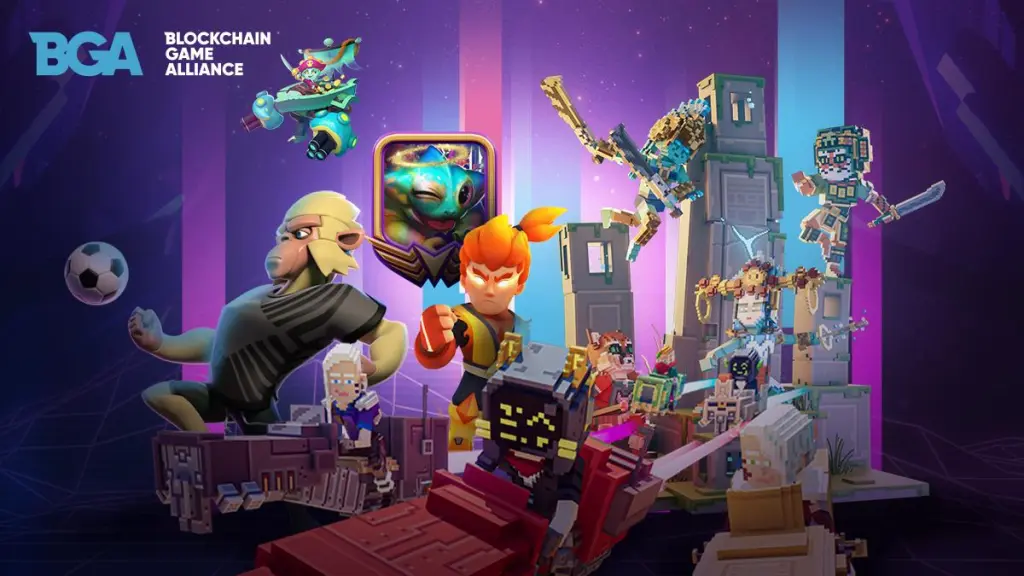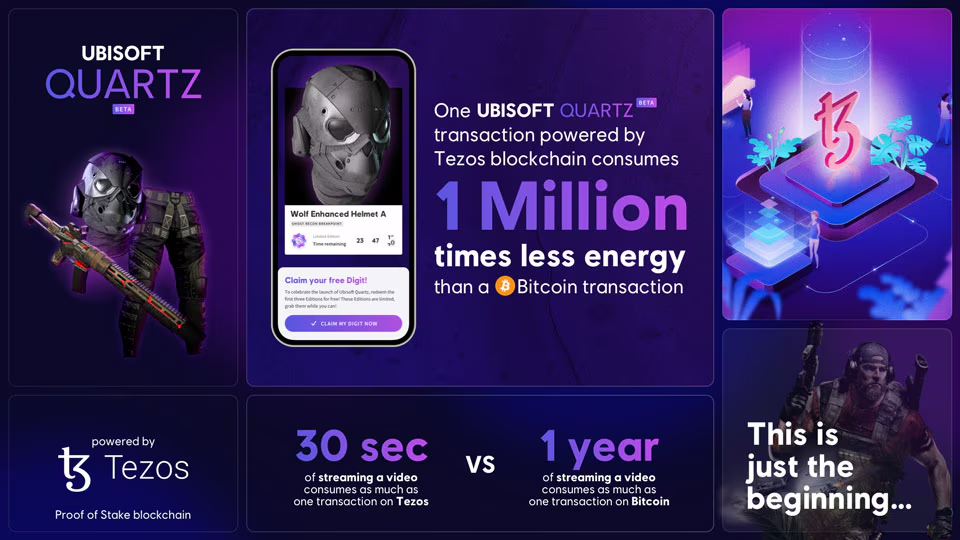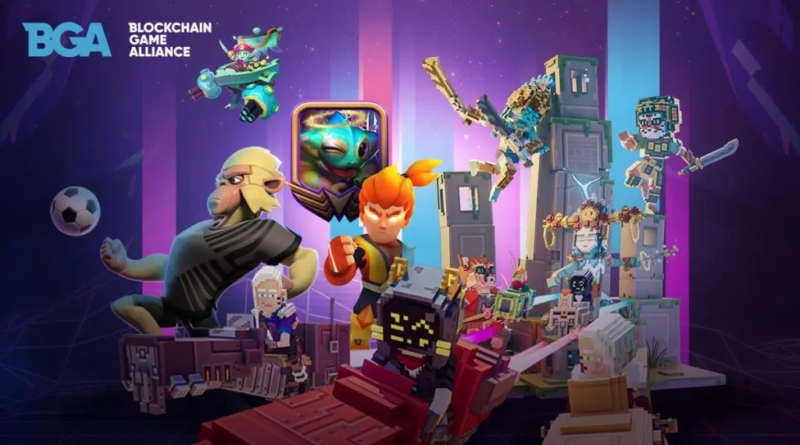A Surge in Senior Leadership Signals the Rise of Blockchain Gaming
Key Takeaways:
- The blockchain gaming industry is experiencing a noticeable influx of senior leadership, marking a significant step toward mainstream recognition and credibility.
- Despite this positive growth, issues around age and gender diversity remain persistent challenges that need to be addressed to ensure a balanced and inclusive workforce.
- With some of the biggest AAA gaming studios gearing up for high-profile blockchain-based game releases in 2025, the gaming industry seems poised for a major shake-up – but despite all the excitement, lingering questions about long-term sustainability still hover in the background.
The “Leadership Wave” in Blockchain Gaming: A Transformation in Motion
2024 has been a year of transformation for blockchain gaming. A wave of senior executives and seasoned veterans from traditional gaming companies has been flooding into blockchain studios like never before. The Blockchain Game Alliance (BGA) calls this shift a “critical turning point,” reflecting growing trust in blockchain gaming’s potential to become a serious industry powerhouse.
So, what’s fueling this surge of talent into blockchain studios?
For one, the fallout from the “crypto winter” pushed blockchain gaming studios to rethink their priorities. Budgets got tighter, and the focus shifted to stability, experience, and proven leadership. Instead of experimenting, companies started bringing in heavy-hittersᅳleaders with track records of success and the strategic vision to guide their studios through the next stage of growth.
More importantly, blockchain gaming has matured. It’s no longer viewed as some niche experiment for tech enthusiasts. Instead, companies are realizing that to achieve commercial success, they need the kind of leadership that AAA studios like Ubisoft, Electronic Arts, and Square Enix are known for. These executives bring decades of experience, valuable industry connections, and the knowledge of how to build games that players around the world genuinely want to play.
The story has shifted. It’s no longer about the technology itselfᅳit’s about using that technology to create great games.
 Blockchain Game Alliance (BGA)
Blockchain Game Alliance (BGA)
Leadership at the Forefront: Insights from the BGA Survey
The BGA’s 2024 survey, which included 623 industry experts, revealed a major structural shift within the workforce. An impressive 73.2% of respondents hold senior management positions, while 46.7% serve as founders, directors, or C-suite executives—a record high over the past four years.
This trend reflects a post-crypto winter recalibration. Following the turbulence in cryptocurrency markets, blockchain gaming companies tightened budgets and prioritized hiring experienced leaders capable of making bold, strategic decisions.
For example, CEOs and CTOs with proven track records at major gaming companies are now making moves into blockchain startups. These leaders bring not only technical expertise but also business acumen and established networks that help studios scale, attract funding, and reach mainstream audiences.
The rise of senior leadership signals one thing loud and clear: blockchain gaming is ready to play in the big leagues.
Gaming Expertise Takes Priority Over Crypto Knowledge
Another interesting takeaway from the survey is the growing dominance of game development specialists in blockchain gaming. In 2024, a significant 52.5% of respondents cited game development as their primary area of expertise—up from 34.2% in 2023.
Meanwhile, the proportion of blockchain and cryptocurrency specialists has declined sharply, dropping to just 10.8%, compared to 21% in both 2022 and 2023.
| Year | Game Development Specialists | Blockchain/Crypto Specialists |
| 2021 | N/A | 27.4% |
| 2022 | 39.2% | 21% |
| 2023 | 34.2% | 21% |
| 2024 | 52.5% | 10.8% |
The decline in blockchain-specific roles (now at 10.8%) suggests a shift in priorities. Studios recognize that to thrive, they must create engaging, high-quality gamesᅳnot just showcase blockchain technology. Players today demand compelling gameplay experiences, rich narratives, and stunning visuals. In other words, the industry is now placing a premium on game design, storytelling, and user engagement.
The Entry of AAA Studios: A Game-Changing Moment for 2025
It signals a growing belief among top-tier developers that blockchain can meaningfully enhance gaming experiences. Concepts like true digital ownership of in-game items (via NFTs) and player-driven economies are finally being taken seriously.
It will set a new standard for competition. The arrival of AAA studios means blockchain gaming companies will need to raise the bar, both in terms of production value and gameplay quality.
Major players like Ubisoft, Square Enix, and CCP Games are already laying the groundwork for large-scale blockchain projects set to launch in 2025.
For instance:
- Ubisoft is pioneering its Quartz project, which allows players to own and trade in-game NFTs securely.
- Square Enix has committed to developing blockchain titles, exploring new ways to integrate player ownership and tokenized game economies.

Ubisoft is pioneering its Quartz project
The entry of these established studios is a double-edged sword. On the one hand, their involvement validates the blockchain gaming industry and significantly boosts its credibility. On the other hand, competition will become far more intense. Smaller blockchain studios will need to raise their game—quite literally—to keep pace with the resources, expertise, and fan bases that AAA studios bring to the table.
More News: Generating crypto for fun with Play to Earn games
Challenges Still Loom: Age and Gender Diversity Gaps
While the growth of leadership is a positive sign, the BGA report also highlights several pressing challenges.
- Lack of Age Diversity:
Younger talent remains underrepresented. Professionals aged 18–24—who are often the most enthusiastic gamers—account for just 6.1% of survey respondents. This gap suggests that blockchain studios are struggling to engage the next generation of talent, despite the demographic being a core player base for gaming. - Gender Imbalance:
The gender gap in blockchain gaming is even more glaring. According to the survey, 82% of respondents are men, with women comprising just 12.5% of C-suite leadership roles.
This lack of diversity limits innovation and perspective. To appeal to a broader audience and foster creativity, blockchain gaming companies must actively address these imbalances and create more inclusive work environments.
The Road Ahead: The Future of Blockchain Gaming
Blockchain gaming is at a turning point. With experienced leaders at the helm, AAA studios stepping in, and game development expertise taking the spotlight, the industry has never been closer to mainstream success.
But there’s still work to do. Studios need to bridge diversity gaps, prioritize player experience, and make sure blockchain tech adds value to the gameplay—without overshadowing it.
At the end of the day, it all comes down to one thing: creating high-quality games that are fun, engaging, and easy to play. The tech should elevate the game, not be the game.
Final Thoughts: A Defining Moment for the Industry
As we look toward 2025, blockchain gaming is on the brink of something big. The entry of AAA studios, the rise of seasoned leaders, and the focus on gameplay excellence signal a major leap forward.
But the road ahead is not without obstacles. Balancing innovation with sustainability, tackling diversity challenges, and keeping players at the heart of every decision will determine the industry’s success.
Can blockchain gaming rise to the occasion and reshape the future of gaming as we know it? That’s the million-dollar question. One thing is certain—the world is watching, and the next few years will be crucial.
The post A Surge in Senior Leadership Signals the Rise of Blockchain Gaming appeared first on CryptoNinjas.
CryptoNinjas



















